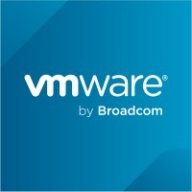

Apache Spark and Spring Boot operate in different domains, with Spark being a leader in big data processing and Spring Boot excelling in application development. Apache Spark stands out in large-scale data processing due to its in-memory processing capabilities.
Features: In Apache Spark, Spark Streaming, Spark SQL, and MLib enable handling of large-scale data processing, real-time streaming, and machine learning. Its in-memory processing significantly reduces latency. Spark supports distributed computing, offering flexibility with batch and streaming data processing. Spring Boot simplifies application development with its lightweight framework, facilitating integration with Java-based tools. It streamlines tasks with built-in security, database interaction, and microservices features.
Room for Improvement: Apache Spark could enhance its ease of use by optimizing real-time querying and improving memory management and monitoring tools. More robust support for machine learning algorithms is needed. Spring Boot faces challenges in security and complex configurations for beginners. Enhancements in integration with external tools and cloud services, as well as improving the learning curve, would benefit its adoption.
Ease of Deployment and Customer Service: Apache Spark offers flexible deployment on-premises, private, public, and hybrid clouds. Spring Boot is mostly deployed in public and hybrid cloud configurations. Apache Spark's customer support relies on community forums and third-party vendors, whereas Spring Boot offers community support but lacks direct customer service. Both depend on community engagement for technical guidance.
Pricing and ROI: Both Apache Spark and Spring Boot are open-source, making them cost-effective, though Spark may incur additional costs for hardware and support in large environments. Apache Spark provides ROI by reducing operational costs through efficient data handling, while Spring Boot offers benefits in reduced development time and costs using its integrated framework. Spark's ROI is notable for medium-term cost savings, whereas Spring Boot achieves ROI through development efficiencies.
| Product | Market Share (%) |
|---|---|
| Spring Boot | 34.4% |
| Apache Spark | 9.3% |
| Other | 56.3% |

| Company Size | Count |
|---|---|
| Small Business | 28 |
| Midsize Enterprise | 15 |
| Large Enterprise | 32 |
| Company Size | Count |
|---|---|
| Small Business | 21 |
| Midsize Enterprise | 10 |
| Large Enterprise | 18 |
Spark provides programmers with an application programming interface centered on a data structure called the resilient distributed dataset (RDD), a read-only multiset of data items distributed over a cluster of machines, that is maintained in a fault-tolerant way. It was developed in response to limitations in the MapReduce cluster computing paradigm, which forces a particular linear dataflowstructure on distributed programs: MapReduce programs read input data from disk, map a function across the data, reduce the results of the map, and store reduction results on disk. Spark's RDDs function as a working set for distributed programs that offers a (deliberately) restricted form of distributed shared memory
Spring Boot is a tool that makes developing web applications and microservices with the Java Spring Framework faster and easier, with minimal configuration and setup. By using Spring Boot, you avoid all the manual writing of boilerplate code, annotations, and complex XML configurations. Spring Boot integrates easily with other Spring products and can connect with multiple databases.
How Spring Boot improves Spring Framework
Java Spring Framework is a popular, open-source framework for creating standalone applications that run on the Java Virtual Machine.
Although the Spring Framework is powerful, it still takes significant time and knowledge to configure, set up, and deploy Spring applications. Spring Boot is designed to get developers up and running as quickly as possible, with minimal configuration of Spring Framework with three important capabilities.
Reviews from Real Users
Spring Boot stands out among its competitors for a number of reasons. Two major ones are its flexible integration options and its autoconfiguration feature, which allows users to start developing applications in a minimal amount of time.
A system analyst and team lead at a tech services company writes, “Spring Boot has a very lightweight framework, and you can develop projects within a short time. It's open-source and customizable. It's easy to control, has a very interesting deployment policy, and a very interesting testing policy. It's sophisticated. For data analysis and data mining, you can use a custom API and integrate your application. That's an advanced feature. For data managing and other things, you can get that custom from a third-party API. That is also a free license.”
Randy M., A CEO at Modal Technologies Corporation, writes, “I have found the starter solutions valuable, as well as integration with other products. Spring Security facilitates the handling of standard security measures. The Spring Boot annotations make it easy to handle routing for microservices and to access request and response objects. Other annotations included with Spring Boot enable move away from XML configuration.”
We monitor all Java Frameworks reviews to prevent fraudulent reviews and keep review quality high. We do not post reviews by company employees or direct competitors. We validate each review for authenticity via cross-reference with LinkedIn, and personal follow-up with the reviewer when necessary.